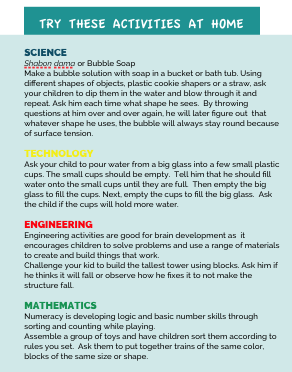- Belgium comes to Yamashita Park
- Residential Villa in Phuket Entices Remote Workers With Long-Stay Rates
- Rare pieces of French glass art at the Mirai Museum of Art
- Feast on fresh fish and seafood at the 2024 ‘Sakana’ Festival
- Would you like to ride in a Louis Vuitton gondola lift?
- Naked Snow Aquarium
- Festive lights at Yomiuriland will get you feeling the holiday vibes
Shape the Future

If Japan’s Education Ministry requested 86 national universities to close their humanities or the social science faculties and convert them to serve areas that media reports as ‘useful to the needs of society,’ it has its own reasons.
Competing in the global economy requires a new mindset and shaping young minds to fit in the future scheme of things.
Being just a college graduate no longer guarantees a job. Technology and globalization continuously transforming jobs at a faster pace than many workers can adapt has left many men and women out of work.
This trend has rapidly been building for many years. The number of workers with skills that match current and future demands in the global community remains to be a growing concern. Critical thinking, problem solving, creativity, the ability to work in cross functional teams which means that a knowledge and understanding in specialized fields, are all important skills that play a part in many disciplines now and in the future.
 Does your child have the necessary foundation?
Does your child have the necessary foundation?
So let’s imagine that you’re going to build a sturdy tower. Where do you start? Certainly, you don’t begin from the 7th level up. There’s no time to waste so parents need to expose their children to Science, Technology, Engineering and Mathematic activities from early childhood because this is when they are active and you can easily tap into their natural curiosity. A study made by University of Illinois’ Professor of Early Childhood Education Lilian Katz titled “STEM in the Early Years’ lays the case. The study claims that allowing children more play and opportunities to ask or investigate in a variety of settings does not only support S.T.E.M. learning but also lays the groundwork for long-term academic success.
School offering STEAM BUILDERS PROGRAM
Why young children need S.T.E.M focus
Like in architecture, building a weatherproof, earth-friendly home hinges on a solid foot base. You want to check that the framing of the rooms and positioning of the electrical wiring system are in a predictable sequence. The process starts with a framework.
Results of a body of research in neuroscience and other developmental sciences point to early experiences and education as important to shaping the architecture of a child’s brain. Exposing young children to brain-building activities in S.T.E.M areas is crucial.
Science is thinking. Exploring, observing, experimenting, asking questions, sharing discoveries, curiosity as to how things work.
Technology is doing. By using tools, people invent things and ways by knowing the problems.
Engineering is also doing. It solves problems with the use of a range of materials and creative ways of designing, building and creating things that work.
Mathematics or Numeracy is measuring. Sequencing, patterning, exploring shapes, sizes, volume all fall in this discipline.
Where to start?
 STEM begins at home.
STEM begins at home.
For example, just by allowing your 5-month old baby to touch plants, feel the texture of snow that changes into water, watch sunrise/sunset and listen to a dog bark, you are setting the stage for them to explore nature, life and investigate.
When you are out in the park, give him the liberty to walk down a dirt path to observe and check out his surroundings. You can also help him pick up leaves from the ground and practice counting or describing the size and color of each leaf. These are just some examples of activities that invite them to observe, talk and add new words to their vocabulary.
School offering STEM Academy
On rainy days, kids ages 3-7 can play indoors with Magic school bus, a good interactive game that will give him a headstart in investigating nature. Sci girls is a good example of exposing preschoolers to investigatory experience.
Schools supporting your kid’s STEM journey
“Multi-age, Dual language education, Age 3 to Grade 12”
“School in Omotesando offering British National Curriculum, Arts & Kids program ages 2-6”
“Where the children are really happy.” (Baby daycare available)
“Educating young women in an environment that fosters academic, ethical and physical excellence”
“Your first step in developing your child’s growing mind”
“School focused on subject learning goals in Language, Arts, Mathematics”
“Teaching children to think deeply, to think for themselves and to think about others.”













